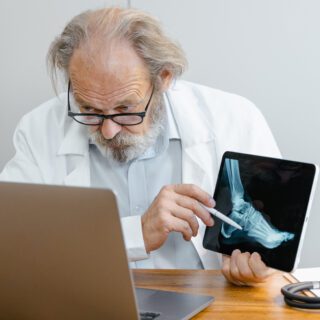
Diabetes is a global health concern that affects millions of people worldwide. The World Health Organization (WHO) estimates that around 463 million people were living with diabetes in 2019, and this number is expected to rise to 700 million by 2045. Diabetes is the 7th leading cause of death worldwide and is responsible for 2.2 million deaths yearly.
In addition to being a leading cause of death, diabetes also causes various debilitating complications, including heart disease, kidney failure, blindness, and amputations, which can significantly impact the quality of life.
The WHO and other international organizations are actively working to raise awareness of diabetes, promote preventative measures and improve access to diabetes care worldwide.
It is important to note that diabetes can be preventable and manageable with lifestyle changes and appropriate care.
People with diabetes should have regular check-ups with their healthcare provider to monitor diabetes management, address complications, and adjust treatment plans as needed. There are several ways to take care of diabetes and manage the condition:
Working closely with a healthcare provider to develop an individualized treatment plan that works for you is important.
In addition to these lifestyle and management strategies, it’s also important for people with diabetes to be aware of hypoglycemia and hyperglycemia and take quick action if they experience these symptoms.
RPM, or remote patient monitoring, is a technology to collect and transmits health data from patients in their homes to healthcare providers. This allows providers to manage better chronic conditions, such as diabetes, hypertension, and heart failure, remotely monitoring patients’ vital signs and symptoms.
This allows providers to better manage diabetes by remotely monitoring patients’ blood sugar levels, insulin usage, and other vital signs.
Some examples of RPM technology used in diabetes management include:
Continuous glucose monitoring (CGM) systems use a sensor inserted under the skin to measure blood sugar levels every few minutes.
The goal of using RPM in diabetes is to improve diabetes management by providing more frequent, accurate, and actionable data for healthcare providers to use to adjust treatment plans, identify potential issues, and make decisions on how to approach diabetes management. It also gives patients a more active role in their care and self-management by giving them more visibility on their glucose levels and insulin usage.
The following steps can be taken to use RPM for chronic care management,
It is important to note that RPM is not a standalone solution and should be used with traditional in-person visits and care.
There are several benefits of using remote patient monitoring (RPM) in diabetes:
Diabetes remote patient monitoring (RPM) can reduce the cost of healthcare in several ways:
It is important to note that while RPM can reduce healthcare costs in the long term, there may be initial costs associated with implementing and maintaining the technology.
Monitoring your health activities and setting daily objectives helps you to stay on course to achieve optimal wellness. The more information you have about your health, the more informed decisions you can make regarding your lifestyle habits.
Health Wealth Safe is the patient’s first choice regarding regular monitoring of chronic diseases like diabetes and BP. Health Wealth Safe provides dedicated teams available 24/7 to assist patients and physicians in staying connected to their health.
RPM tool by Health Wealth Safe stores all your health records in one place, it also allows you to add members to your healthcare team. It may be your spouse, best friend or anyone you trust the most.
Take control of your health today! Download the Health Wealth Safe app to track your daily goals and monitor your health activities. Don’t wait; make informed decisions about your habits and take the first step toward optimal wellness!
Become a Partner
Support
Portals